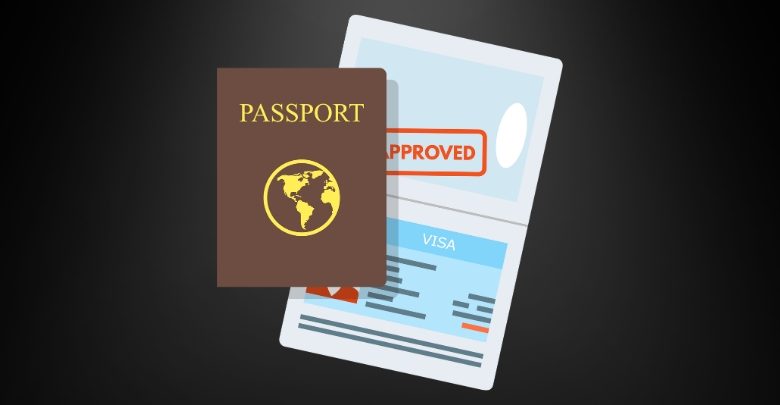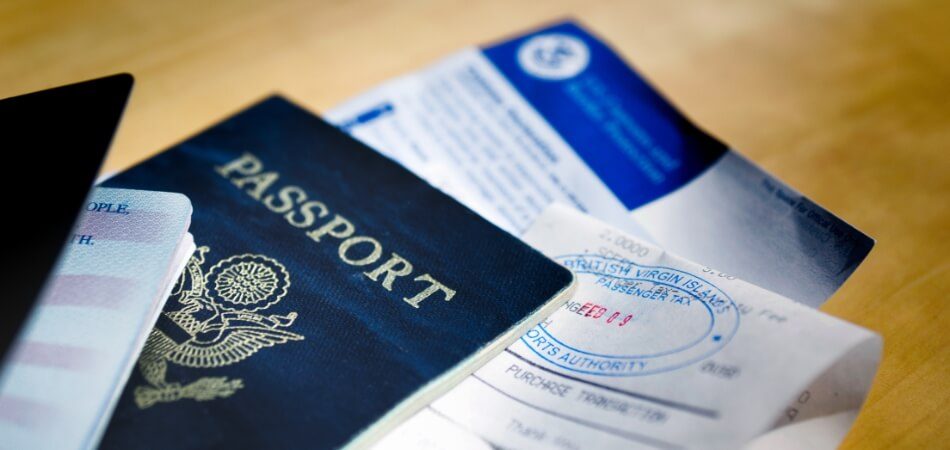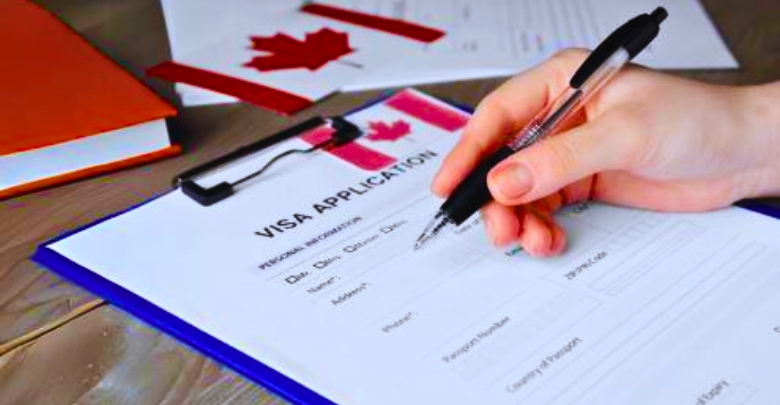Attending a conference in Canada can be a rewarding experience. However, the problem arises when you realize that the event, networking opportunities, or additional professional development activities extend beyond the validity of your initial visa.
You may ask, can I extend my conference visa in Canada?
Yes, you can. To avoid the agitation of cutting your trip short or facing legal issues, it is essential to act proactively. Canadian immigration authorities advise applicants to apply for an extension at least 30 days before their status expires.
This solution allows you to continue your stay legally, giving you the peace of mind to focus on your conference and everything else Canada offers without constantly checking the calendar.
A Brief Overview Of Conference Visa In Canada
Canada is a prime destination for global conferences and professional meet-ups. Its appeal spans sectors from tech to healthcare, drawing enthusiasts and professionals worldwide.
Each year, countless individuals venture north, eager to participate in Canadian conferences to experience groundbreaking discussions and workshops. These aspirants primarily rely on the Conference Visa, specifically designed for temporary stays centered around such events. Distinct from tourist or work visas, it’s tailored for those attending conferences, seminars, and professional development workshops.
Acquiring this visa involves a straightforward application process, though requirements may vary based on the event’s nature and the applicant’s home country.
While generally short-term, extensions are possible under certain circumstances, ensuring delegates can maximize their Canadian experience. Remember, staying informed about visa specifications and updates is vital for a seamless travel experience.
How Long Is The Validity Period For A Conference Visa?
Canada’s Conference Visa is a gateway for professionals and enthusiasts to immerse in global discussions on various domains. But how long can these individuals engage in the Canadian conference realm on this visa?
Like other temporary visas, the Conference Visa typically spans a short duration, often tailored to the event’s length. The visa usually lasts for the conference period plus a few additional days. This gives attendees a buffer to prepare and wind down post-event.
However, the duration might vary based on individual circumstances and the specific event. Some visas can stretch longer, allowing attendees to explore Canada or attend related post-conference events. It’s essential to clarify specifics during the application process to prevent overstaying.
Despite its general short-term nature, extensions are feasible for valid reasons. Should delegates desire to stay longer, they must apply well in advance. Remaining informed and proactive ensures a hassle-free extended stay, maximizing the Canadian conference experience.
Can I Extend My Conference Visa In Canada?
For professionals keen on prolonging their stay in Canada post-conference, the question of visa extension naturally arises. So, can I extend my conference visa in Canada?
Extending a Conference Visa is possible, though specific conditions apply. The Canadian immigration authorities recommend filing for an extension at least 30 days before visa expiry. This proactive step avoids potential legal complications and ensures continuity in your stay.
The primary reason for extension must be compelling and related to the initial purpose of the visit. Examples include extended conference schedules, additional workshops, or prolonged networking events. However, routine tourism or unrelated activities might not qualify as valid reasons.
While the extension process might seem straightforward, it requires meticulous documentation. Ensuring a complete application, paired with valid reasons, boosts approval chances. Conversely, inadequate preparation might lead to application denial, cutting your Canadian journey short. It’s essential to know the validity of a Canadian conference visa before planning your stay extension.
What Are The Restrictions Associated With A Conference Visa?
Understanding the boundaries of any visa type is paramount to ensuring a hassle-free stay. Let’s delve into the restrictions tied to the Canadian Conference Visa.
Duration Limitation
The Conference Visa is designed primarily for short-term stays, mirroring the duration of the conference or event. It often grants time for the event and a few additional days for preparation and conclusion. Overstaying without a valid extension can result in legal complications and potential bans.
Employment Prohibition
Holders of a Conference Visa are not authorized to seek or undertake employment in Canada. This visa strictly caters to those attending professional events, seminars, or workshops. Engaging in work can jeopardize one’s visa status and invite legal action.
No Path to Permanent Residency
This visa is not a direct pathway to Canadian permanent residency or citizenship. It’s a temporary visa with a specific and restricted purpose. Applicants wishing for more extended stays should explore other visa categories.
Restricted Activities
While in Canada, visa holders must adhere to the activities explicitly mentioned in their application. Participating in activities outside the conference’s scope might breach visa terms. Always ensure your actions align with the visa’s designated purpose.
Reporting Requirements
Some conference visas are obligated to report specific details to immigration authorities. This could involve sharing attendance records or other event specifics. Non-compliance can lead to visa revocation or future application denials.
Considerations For Extending A Conference Visa
Extending a visa comes with its own set of intricacies. Here, we explore crucial considerations for prolonging a Conference Visa in Canada.
Eligibility Criteria
It’s essential to ascertain if you meet the required conditions for an extension. These typically revolve around the nature of the conference or related activities. Merely wanting to stay longer without a valid reason may lead to denial.
Application Timeliness
The Canadian immigration authorities stress the importance of timely applications. Ideally, initiate the process 30 days before your current visa expires. This ensures adequate processing time and reduces the risk of overstay complications.
Necessary Documentation
Every visa extension requires supporting documentation to validate the request. This might include details of extended conference schedules, additional workshops, or networking opportunities. Ensure papers are accurate and complete to facilitate a smoother process.
Costs Involved
Extending your visa often come with associated fees. While considering an extension, it’s crucial to factor in these costs and ensure you’re financially prepared. Late or insufficient payment can hinder the extension process.
Integration with Other Visas
Sometimes, a Conference Visa extension might transition into another visa type. Knowing the nuances of this process, and the potential pathways available, can be beneficial. It’s vital to understand the implications and requirements of such transitions.
Legal Implications
Overstaying or violating the terms of your visa can have legal consequences. Being aware of these ramifications and acting responsibly is paramount. It ensures a hassle-free extended stay and avoids potential future entry complications.
How To Extend Your Conference Visa In Canada?
manage the process of visa extension requires clarity and precision. Let’s break down the step-by-step guide for prolonging your Conference Visa in Canada.
Step 1: Determine the Need for Extension
Begin by clearly identifying the reasons you seek an extension. This could range from prolonged event schedules to follow-up workshops. Ensure these reasons align with the visa’s primary purpose.
Step 2: Gather Essential Documentation
Start accumulating the necessary documents that support your reason for an extension. This can include conference itineraries, workshop details, or official invites. Having these ready streamlines the application process.
Step 3: Review the Application Form
Before filling it out, familiarize yourself with the visa extension application form. This helps identify details you need and potential areas requiring clarification. Preparation is vital to a well-completed form.
Step 4: Pay the Required Fees
There’s a fee associated with visa extensions. Ensure you know the exact amount and pay it correctly. Always keep a receipt or proof of this transaction.
Step 5: Submit Your Application
With all documents in place and the form completed, submit your application. It’s crucial to do this well before your current visa expires. Timely submission reduces the risk of overstay complications.
Step 6: Monitor Your Application Status
After submission, keep tabs on your application status. Various platforms, including online portals, can assist with this. Staying informed helps you manage your next steps more effectively.
Step 7: Prepare for Potential Interview
Sometimes, immigration officers may require a face-to-face interview. Prepare by revisiting your reasons for the extension and any related documents. This step ensures you articulate your needs confidently.
Step 8: Respect the Outcome
Whether your application is approved or denied, respect the decision. If approved, adhere to the new visa stipulations. In case of denial, consider alternative options or prepare for departure.
Step 9: Seek Professional Guidance
If uncertain at any stage, consider seeking advice from immigration professionals or lawyers. They can provide insights, review your application, or suggest best practices. Expert guidance often simplifies complex visa matters.
Final Considerations
When attending conferences in Canada, it’s not uncommon for professionals to desire more time for extended workshops, additional networking, or even soaking in the afterglow of a fruitful seminar.
This evokes the question, can I extend my conference visa in Canada? The concern here is more than staying longer but the challenges and implications it brings.
Fortunately, the solution is both encouraging and straightforward. Canada offers a structured process for visa extensions, allowing attendees to legally and comfortably extend their stay.
By understanding eligibility criteria, preparing essential documents, and acting proactively, one can easily manage this process. So, while the question might arise out of concern, the solution raising extended opportunities and experiences.








